Hyundai i30 Wagon vs VW Taigo - Differences and prices compared
Compare performance (140 HP vs 150 HP), boot space and price (24800 £ vs 19600 £) at a glance. Find out which car is the better choice for you – Hyundai i30 Wagon or VW Taigo?
Costs and Efficiency:
Price and efficiency are key factors when choosing a car – and this is often where the real differences emerge.
VW Taigo has a noticeable advantage in terms of price – it starts at 19600 £, while the Hyundai i30 Wagon costs 24800 £. That’s a price difference of around 5224 £.
Fuel consumption also shows a difference: VW Taigo manages with 5.30 L and is therefore hardly perceptible more efficient than the Hyundai i30 Wagon with 5.70 L. The difference is about 0.40 L per 100 km.
Engine and Performance:
Power, torque and acceleration are the classic benchmarks for car enthusiasts – and here, some clear differences start to show.
When it comes to engine power, the VW Taigo has a barely noticeable edge – offering 150 HP compared to 140 HP. That’s roughly 10 HP more horsepower.
In acceleration from 0 to 100 km/h, the VW Taigo is somewhat quicker – completing the sprint in 8.20 s, while the Hyundai i30 Wagon takes 9.80 s. That’s about 1.60 s faster.
In terms of top speed, the VW Taigo performs slight better – reaching 212 km/h, while the Hyundai i30 Wagon tops out at 197 km/h. The difference is around 15 km/h.
There’s also a difference in torque: Hyundai i30 Wagon pulls hardly perceptible stronger with 253 Nm compared to 250 Nm. That’s about 3 Nm difference.
Space and Everyday Use:
Cabin size, boot volume and payload all play a role in everyday practicality. Here, comfort and flexibility make the difference.
Both vehicles offer seating for 5 people.
In curb weight, VW Taigo is minimal lighter – 1229 kg compared to 1316 kg. The difference is around 87 kg.
In terms of boot space, the Hyundai i30 Wagon offers distinct more room – 602 L compared to 440 L. That’s a difference of about 162 L.
In maximum load capacity, the Hyundai i30 Wagon performs evident better – up to 1650 L, which is about 428 L more than the VW Taigo.
When it comes to payload, Hyundai i30 Wagon a bit takes the win – 524 kg compared to 457 kg. That’s a difference of about 67 kg.
Who comes out on top?
Overall, the VW Taigo shows itself to be edges out slightly and secures the title of DriveDuel Champion.
It convinces with the more balanced overall package and proves to be the more versatile choice for everyday use.
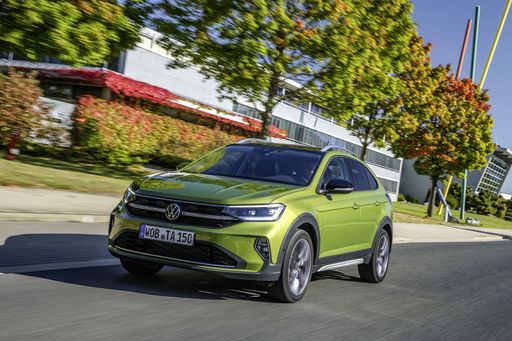
VW Taigo
Costs and Consumption
View detailed analysis
Engine and Performance
View detailed analysis
Dimensions and Body
View detailed analysis
Hyundai i30 Wagon
The Hyundai i30 Wagon is a practical family hauler that pairs roomy, sensible packaging with clean, modern lines and a surprisingly composed chassis. Comfortable, well-equipped and priced to make rivals sweat, it quietly ticks the boxes for daily life and weekend escapes while still managing a little grin on twisty roads.
details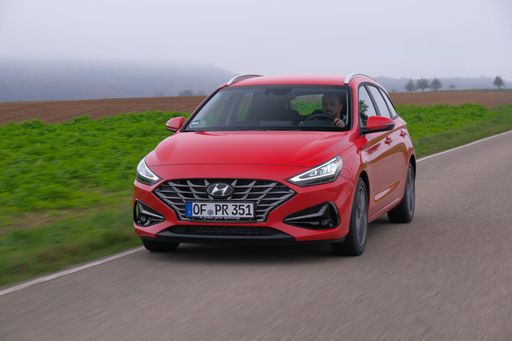
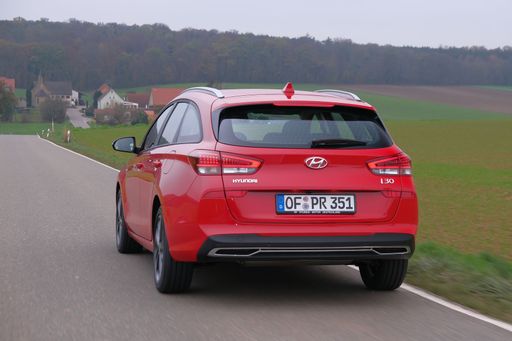
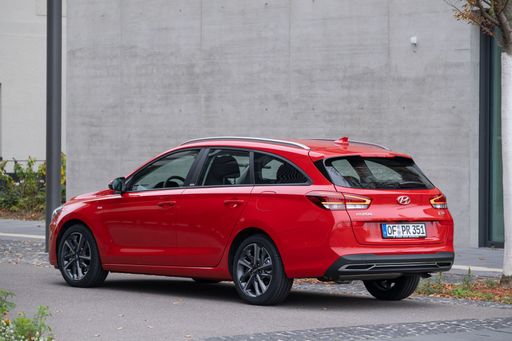
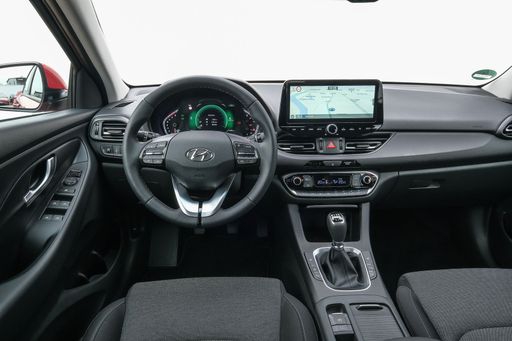
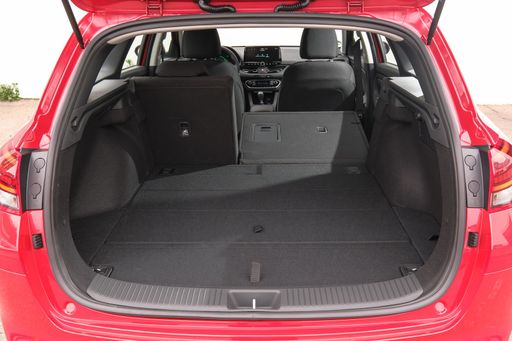
VW Taigo
The VW Taigo brings coupe-like flair to the compact crossover scene with sharp styling and an interior that punches above its price, feeling smarter than you’d expect. It’s an easygoing daily companion that balances comfort and practicality with a playful wink, perfect for city drivers who want something livelier than a regular hatchback.
details
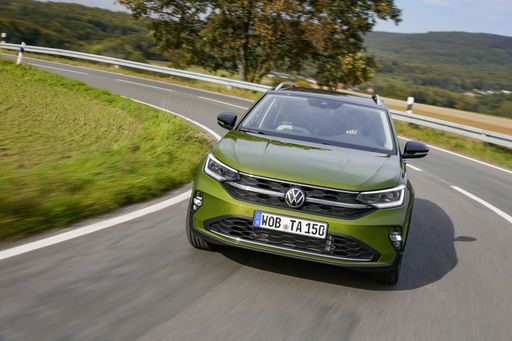


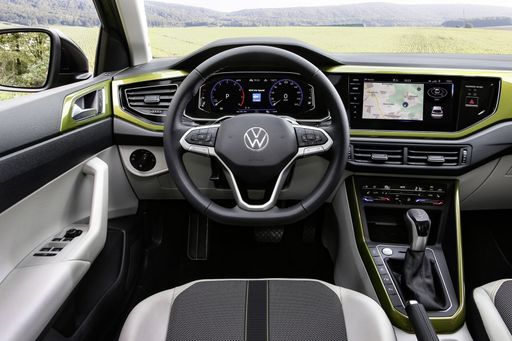

|

|
|
|
|
Costs and Consumption |
|
|---|---|
|
Price
24800 - 30100 £
|
Price
19600 - 31300 £
|
|
Consumption L/100km
5.7 - 6 L
|
Consumption L/100km
5.3 - 5.8 L
|
|
Consumption kWh/100km
-
|
Consumption kWh/100km
-
|
|
Electric Range
-
|
Electric Range
-
|
|
Battery Capacity
-
|
Battery Capacity
-
|
|
co2
130 - 136 g/km
|
co2
120 - 132 g/km
|
|
Fuel tank capacity
50 L
|
Fuel tank capacity
40 L
|
Dimensions and Body |
|
|---|---|
|
Body Type
Estate
|
Body Type
SUV
|
|
Seats
5
|
Seats
5
|
|
Doors
5
|
Doors
5
|
|
Curb weight
1316 - 1461 kg
|
Curb weight
1229 - 1302 kg
|
|
Trunk capacity
602 L
|
Trunk capacity
440 L
|
|
Length
4585 mm
|
Length
4266 mm
|
|
Width
1795 mm
|
Width
1757 mm
|
|
Height
1475 mm
|
Height
1518 mm
|
|
Max trunk capacity
1650 L
|
Max trunk capacity
1222 L
|
|
Payload
439 - 524 kg
|
Payload
448 - 457 kg
|
Engine and Performance |
|
|---|---|
|
Engine Type
Petrol, Petrol MHEV
|
Engine Type
Petrol
|
|
Transmission
Manuel, Automatic
|
Transmission
Manuel, Automatic
|
|
Transmission Detail
Manual Gearbox, Dual-Clutch Automatic
|
Transmission Detail
Manual Gearbox, Dual-Clutch Automatic
|
|
Drive Type
Front-Wheel Drive
|
Drive Type
Front-Wheel Drive
|
|
Power HP
100 - 140 HP
|
Power HP
95 - 150 HP
|
|
Acceleration 0-100km/h
9.8 - 13.3 s
|
Acceleration 0-100km/h
8.2 - 11.1 s
|
|
Max Speed
178 - 197 km/h
|
Max Speed
184 - 212 km/h
|
|
Torque
172 - 253 Nm
|
Torque
175 - 250 Nm
|
|
Number of Cylinders
3 - 4
|
Number of Cylinders
3 - 4
|
|
Power kW
74 - 103 kW
|
Power kW
70 - 110 kW
|
|
Engine capacity
998 - 1482 cm3
|
Engine capacity
999 - 1498 cm3
|
General |
|
|---|---|
|
Model Year
2024
|
Model Year
2024 - 2025
|
|
CO2 Efficiency Class
D, E
|
CO2 Efficiency Class
D
|
|
Brand
Hyundai
|
Brand
VW
|
What drivetrain options does the Hyundai i30 Wagon have?
Available configurations include Front-Wheel Drive.
The prices and data displayed are estimates based on German list prices and may vary by country. This information is not legally binding.
